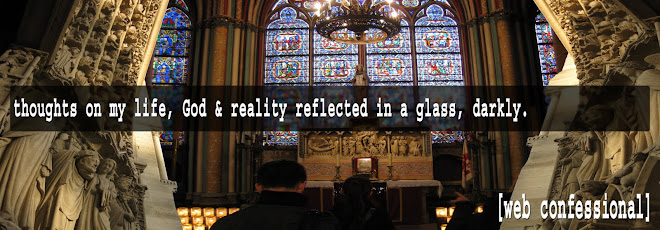This is my review for Viral Blogger on the book, Who Really Goes to Hell? The Gospel You've Never Heard.
What Rudel is attempting to do is commendable. With his book and several websites, he seems to be trying to start a massive theological movement. I wouldn't even be surprised if deep down inside Mr. Rudel fancies himself to be modern day Martin Luther, and get the sense that the author believes he has stumbled upon a new reformation. Now I won't disagree that we certainly need a new sort of reformation, and indeed I believe we are in the midst of one currently. But Mr. Rudel's less than subtle attempts to spark a new one himself with his book and blog comes off as a little naive.
Secondly, if Mr. Rudel wants to be taken seriously he should nix the "biblical heresy press" thing. The logo is amateurish and cheesey. But more importantly, while I get what the author means by the name, many people won't. I have decided not to lend out my copy of Who Really Goes to Hell to some conservatives in my life because I think the phrase "Biblical heresy" will be too off-putting and color their view of the author's arguments from the get go.
Thirdly, as other reviewers have noted, there are typos and grammatical errors galore. I also could have done without all the font changes, bold type face and previews of what's to come in further chapters.
Now that those quibbles, most dealing with style and presentation, are out of the way I would like to say that I really enjoyed the substance of the author's arguments. I thoroughly resonate with the notion that the modern gospel has been piled upon by centuries of theological lenses that are far removed from the world view and cultural-historical context of the first century Palestinian Jew. Mr. Rudel's argument that one would come away with a thoroughly different gospel than today's evangelical one, if he or she were only given the synoptic gospels, is spot on. Furthermore, I found many of my own questions and arguments being brought up in the pages of Rudel's book.
Because I'm not a bible scholar and I cannot adequately critique all of Rudel's claims about ancient Jewish beliefs and culture, I'll give the author the benefit of the doubt that his interpretations of Hebrew and Greek words and his depictions of ancient Jewish thought are accurate. However I would have appreciated Rudel citing his scholarly sources. Here and there he mentions N.T. Wright and David Flusser, but a notes section would have been much appreciated.
Overall, I agreed with much of Rudel's criticisms of "the modern gospel." Like Rudel, I grew up in the world of conservative evangelicalism, and found him asking the same questions I have. His observation that the modern gospel comes by way of reading the Jewish gospels through a western protestant lens, and that we must revisit the writings of the apostles through a Jewish lens has been made before. Yet I think that Rudel's contribution to this view is very helpful and I found his differentiation of deliverance and regeneration intriguing. I'll definitely be re-reading this book.
And by the way, I agree with his answer to the title's question.

No comments:
Post a Comment